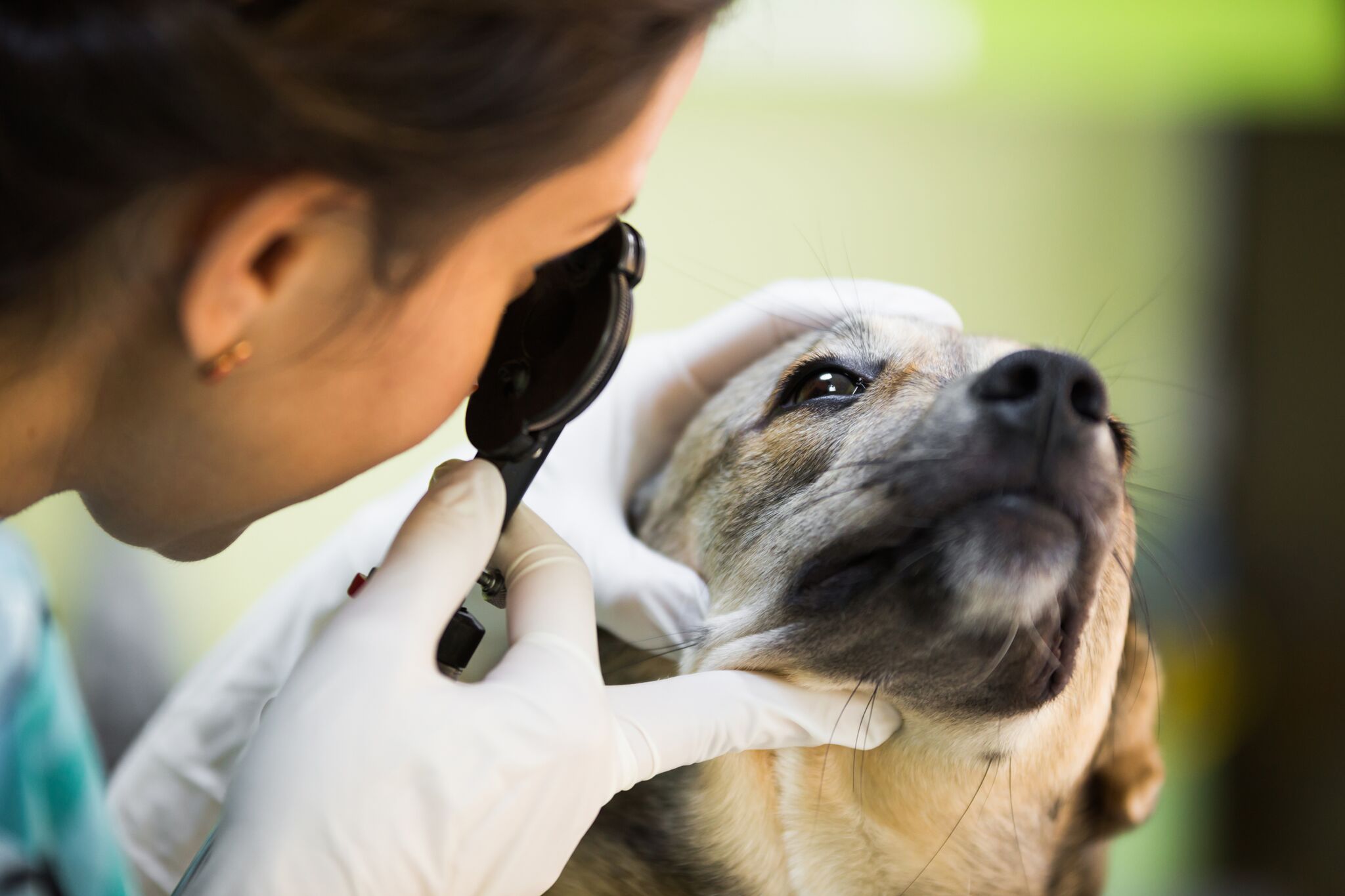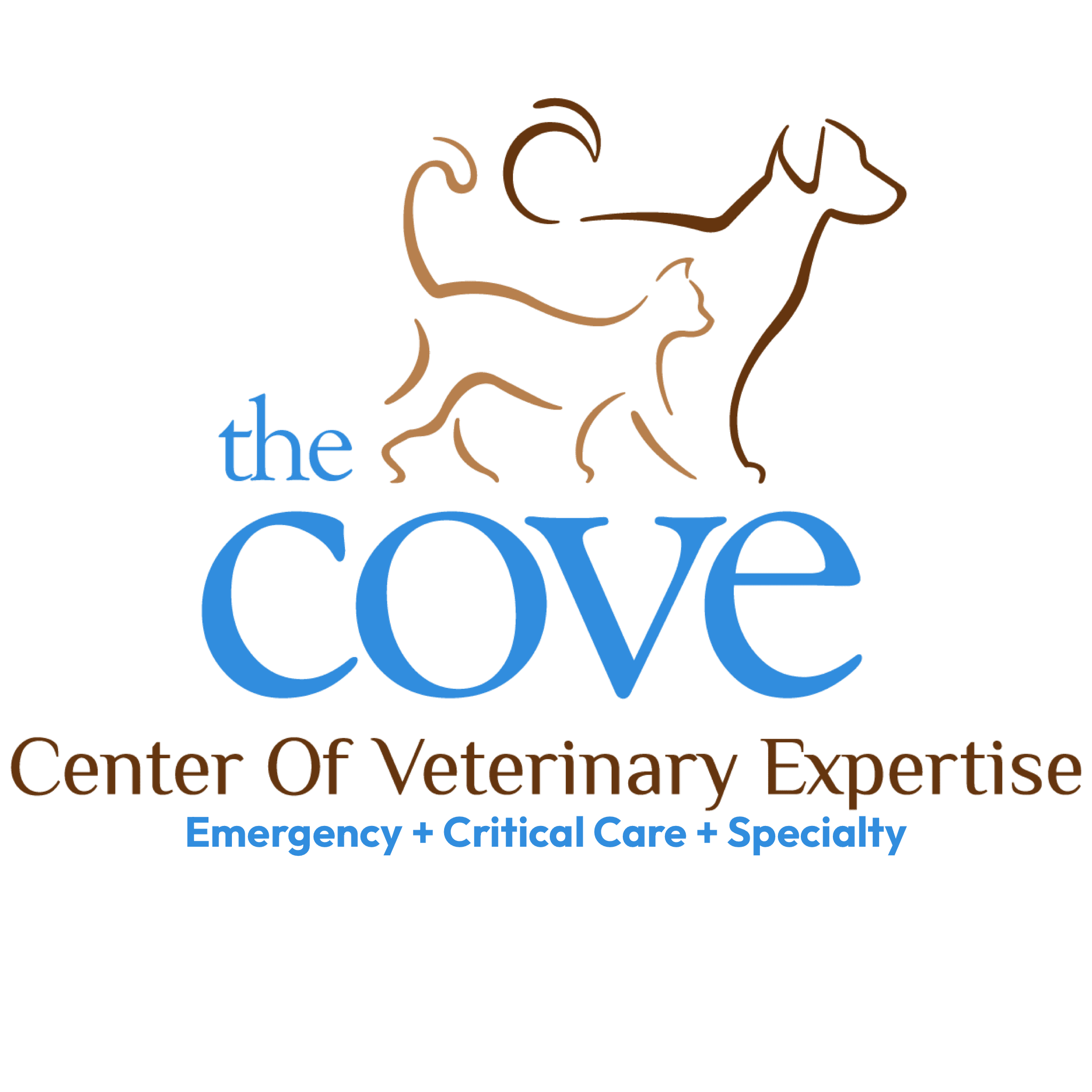Eyes are the windows to the soul and no one can deny the soulful eyes of a beloved pet companion. Eye health in pets, however, is sometimes overlooked despite the fact that good vision is critical to a good quality of life.
The COVE is here to explain why your pet’s peepers need consistent care and veterinary checkups for a lifetime of good health.
Pet Eye Care
Since pets cannot tell us if their vision is blurry or if their eye hurts, it is up to us to be proactive about eye health.
A part of your pet’s annual examination at your primary care veterinarian’s office includes an assessment of vision and eye health, addressing concerns, such as inflammation or the suspicion of cataracts or glaucoma.
At home, it’s important to be aware of any changes in your pet’s vision. Signs that your pet is experiencing problems include:
- Bumping into walls or furniture
- Clumsiness
- Apprehension about movement
- Noticeable discharge
- Redness
- Cloudiness
- Reluctance to go out at night
- Pawing at eyes
- Pupil distortion
- Obvious scratch or injury
And, during your pet’s grooming sessions, take a close look at their eyes. Healthy eyes should be clear and bright. When bathing your pet, be sure to wipe off any excess water from the eyes and avoid using shampoos or products around the face.
Note any changes you may see in your pet’s eye. Since eye issues can be subtle, keeping your pet’s wellness appointments is crucial. Any eye injury should be considered an emergency as it can have lasting effects if not promptly treated. We’re here around the clock to help with minor or major eye emergencies. For routine care or questions, we encourage you to reach out to your family veterinarian.

Advanced Eye Care
Eye injuries may be more likely in a rambunctious puppy or kitten, but certain eye problems can also coincide with an underlying medical condition. Cancer, diabetes, and high blood pressure are known to impact the health of the eyes.
Your family veterinarian may handle minor ocular issues, but some conditions are more complex and could require care by a veterinary ophthalmologist. These include:
- Tumors of the eye and surrounding structures
- Glaucoma
- Cataracts
- Correction of other eyelid abnormalities
- Entropion (inward folding of the eyelids)
- Retinal detachments
- Surgical repair for deep corneal ulcers
- And many other complex issues
If advanced eye care is needed outside of an emergency, we take comfort in knowing Dr. Heather Brookshire, DVM, DACVO, a board-certified veterinary ophthalmologist and owner of the Animal Vision Center of Virginia in Virginia Beach* is readily available to offer ophthalmic services. She will utilize specialized instruments to allow for a more detailed ocular examination than what is routinely available, as well as additional medical and surgical treatments. Her significant training, experience, and compassion will help you rest easy, knowing that your furry family member’s eyes are in the best possible hands. Your family veterinarian may assist you with a referral.
*Dr. Brookshire has office hours at The COVE several times a month. Inquire about utilizing this option if you prefer when scheduling with her team at 757-749-4838.
Bright Eyes, Healthy Eyes
Not all eye conditions can be avoided, but by maintaining your pet’s annual exams, and seeking advanced care when needed, you can help increase the chances of early diagnosis and treatment (which may include a successful cure).
If you have any questions about a possible ocular (eye) emergency, our dedicated and knowledgeable team can provide insight into those amazing, essential eyes! Call us anytime at 757-935-9111.
About Us
The COVE’s veterinarians and staff wholeheartedly embrace the core values of community, collaboration, commitment, compassion, and integrity. This focus ensures that pets, the people who love them, and their primary care veterinarians have as positive and affirming a healthcare experience as possible, regardless of the circumstances that bring us all together.
